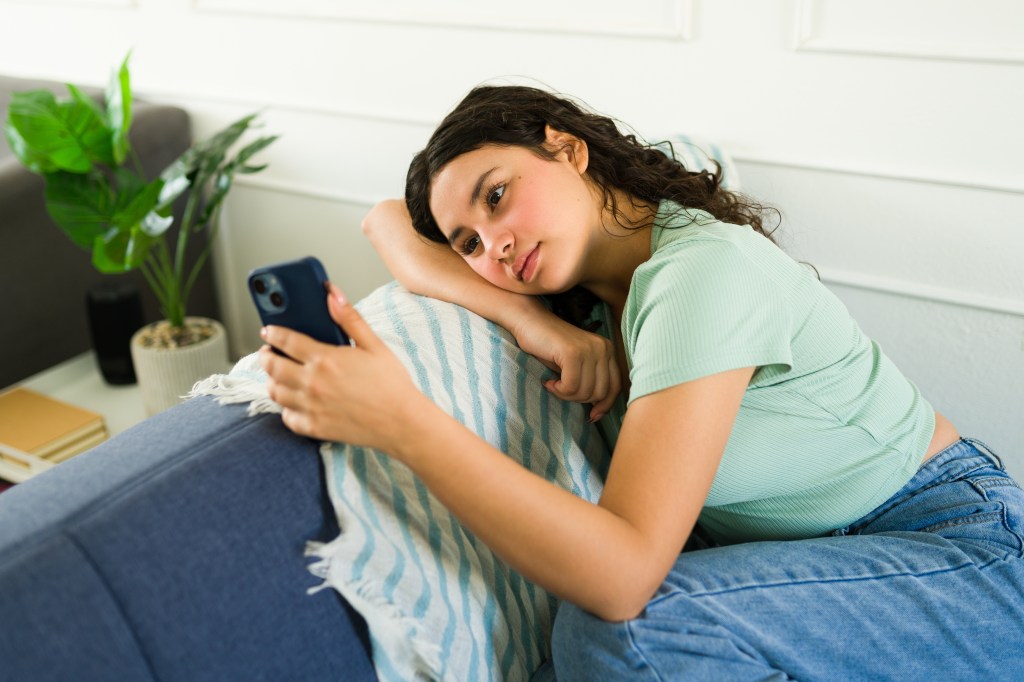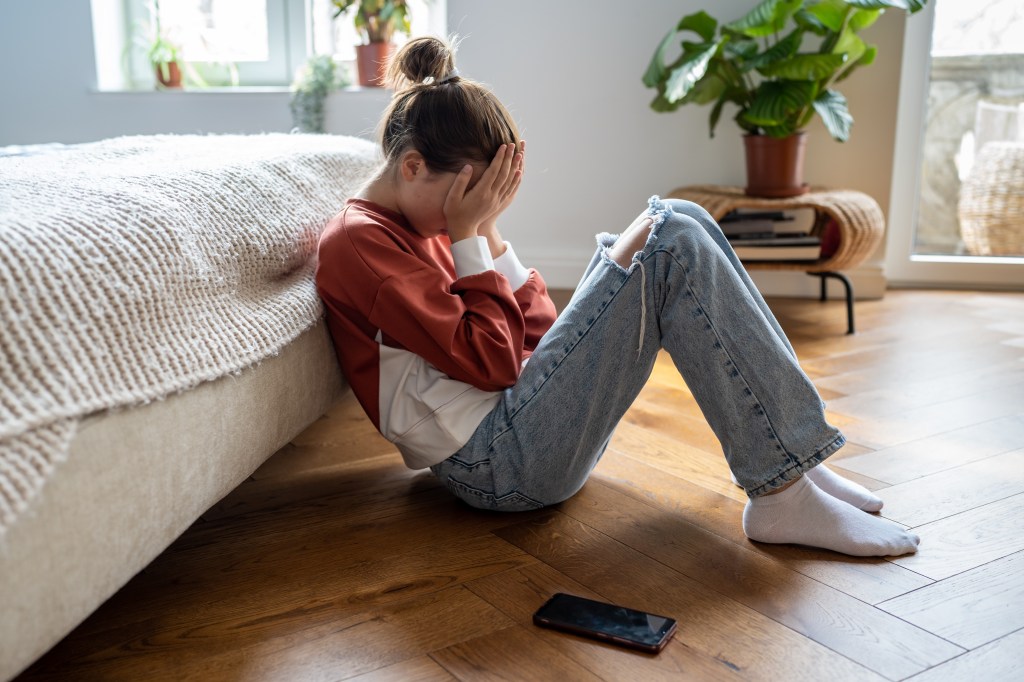A vast majority of Australians fighting their mental health are returning to social media – not trained professionals – for answers, in what experts say they may be “their fall and damage”.
Research from the Distiller of News Corp’s Distiller with Mediabank found nearly two in three Australians, these informal platforms, led by colleagues, established medical resources and experts when it came to identifying their primary source of mental health and well -being information.
Instagram and Tiki represent a seemingly endless reserve of such an intel for our country’s youngest, with 49 percent of General Zers and 33 percent of millennia returning to the first, and 44 percent of General Zers and 25 percent of the millennia for the latter.
Those with under -average mental health were also significantly more likely (27 percent) to seek ticket advice especially than those who considered their average well -being (19 percent).

This is despite the fact that almost a third of General Z respondents reported negative impacts from the widespread use of social media, attributing their daily stress and their anxiety to condemn their movement and comparison with others.
Such findings support a growing organ of evidence of possible long -term damage caused to those who have come to an age under the shine of a smartphone.
American social psychologist Jonathan Haidt has gone so far as to argue that equipment is only to blame for the Mental Health Crisis Gen Z is currently suffering.
“There is so much research, there is so much evidence that it is (social media),” said clinical psychologist Amanda Gordon.
“So many evidence that change people’s brains in a way that they cannot focus and focus on one thing that they need to break down all the time than they become less discriminatory of readers and thinkers less critical than they are compared themselves – they are cast images that are unreasonable and unreasonable,
Although Associate Professor of Curtin University and Clinical Psychologist, Dr. Patrick Clarke disagrees with the assertion that the Internet is the fault of the decline of the mental well -being of young Australians, “there may be some problems with the great support or exclusively on social media for mental health information (IT) is one of the impacts without mental health expertise.”
“The risks are similar to the search for other health-related information on social media-for example, by directing people to ineffective or potentially harmful treatments, incorrect self-diagnostics, potential reinforcement of some harmful behaviors (such as self-harm or disorder), and especially providing information or advice that has the effect of delaying, Dr. Clarke.
That Gen Z “has grown with social media platforms,” said the manager of the clinical council and government space, meaning that they “understand their (intimate) benefits and risks.”
“We also realize that there are many other issues in their lives that affect their mental health, including the cost of living, the insecurity of the future, and the climate concerns, to name some.

“There is no particular cause of mental health, and the issues faced by young people demand the collective efforts of the government, the health sector, the business and the community.
“By focusing a lot on just one environment, we risk losing the opportunity to support young people with issues and challenges that may arise in a number of ways, both online and out of line.”
There are three main reasons, said Gordon, Gen Z is seeking information or help from Tiktok’s likes and Instagram.
“Then the accessibility that it is (available) 24/7 – because Gen Zers worrying about mental health often worry about it at midnight or at two o’clock in the morning; it is accessibility in cost, in what is free; and is its anonymity,” Gordon said.
If a young man asks a mental health professional about anxiety, “we will want to investigate a little and find out what is happening to you and if we can give you specific help and specific information,” she said.
It is a level of interrogation that can be avoided if you write the same question in the search bar of a social media platform, Gordon added. “The problem of not discovering yourself, however, is that you will not receive information that is necessarily useful to you.”
Dr. Clarke pointed out another reason that General Z is receiving information from such social media is “because it is where they are already engaged”.
“I’m not sure that a young man experiences a problem, and then says,” I know, I’ll check Tiktok, “said Dr. Clarke. “I suspect it is probably more than more social media is where they are getting the information because it is where they are already.
“I think comfortable, rather than cost, is also likely to be a matter. Access to professional support often involves detecting a parent, detecting a doctor and spending time on a waiting list to see a mental health professional.
“A phone is very accessible for comparison. So, especially in the early stages of experiencing difficulties, young people may seek more information from social media.”
Possible benefits, said Dr. Clarke, for Gen Zers seeking mental health tips in such popular spaces should not be fired.
“Listening to others to discuss their experiences can help a young man feel less isolated and also potentially destigmatizes assistance in mental health services,” he continued.
“Normalizing help research can encourage young people to seek professional support when needed. Of course it depends on the quality of content and the ability of users to engage critically.
“There are more professionals who deal with people through online platforms that increases exposure to extraordinary information.”
Therefore it is indispensable, said Dr. Clarke, “to educate young people about critical engagement with social media and to determine less and less reliable resources.”
“(This) is probably one of the most important skills that will help them safety mental health information on social media,” he said.
General Zers must first know, advised Thain, “when social media makes us compare to others.”
“Many posts have been edited, staged or carefully selected to create a certain image,” she said.
“Remembering yourself that what you see online is not always true can help reduce pressure and build a healthier mentality.”
Next, Thain said, “Clean your food. Pass through your food and consider the following: Do you account for you to follow you feel good about yourself and your life? Do you annoy you or bother you? Do you experience inappropriate thoughts or feelings when you are moving?
Finally, it is “important” to create a balance between spending online and “activities that support our well -being”.
“Set the boundaries by following your use, turning off the unkind notifications and accounts that negatively affect you,” Thain said.
“Start with small changes, how to leave your phone out of your bedroom or use a special alarm and gradually build healthier habits.”
#General #returning #social #media #mental #health #assistance #trained #experts #survey
Image Source : nypost.com